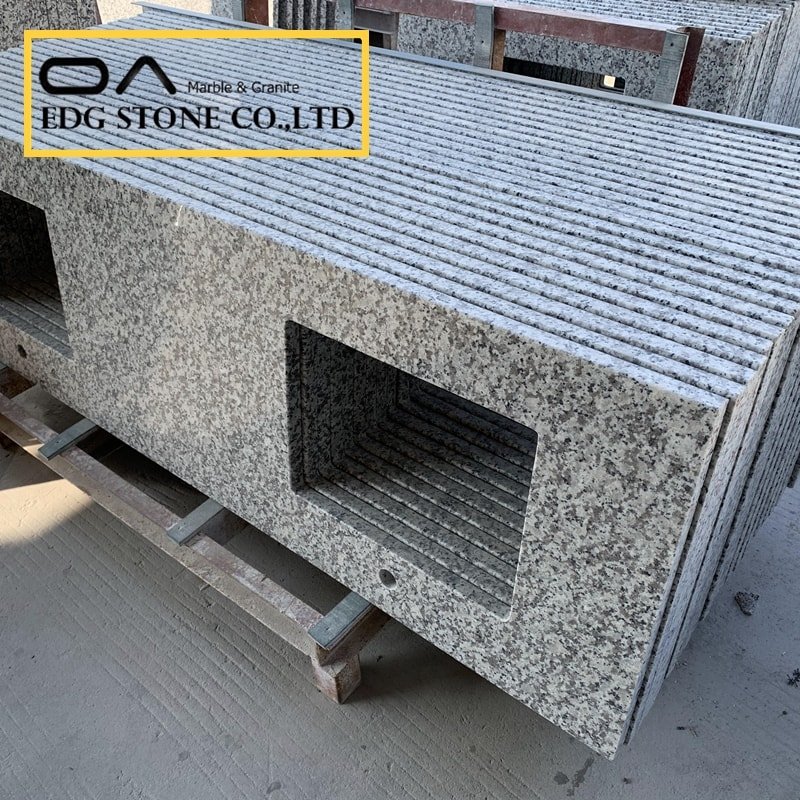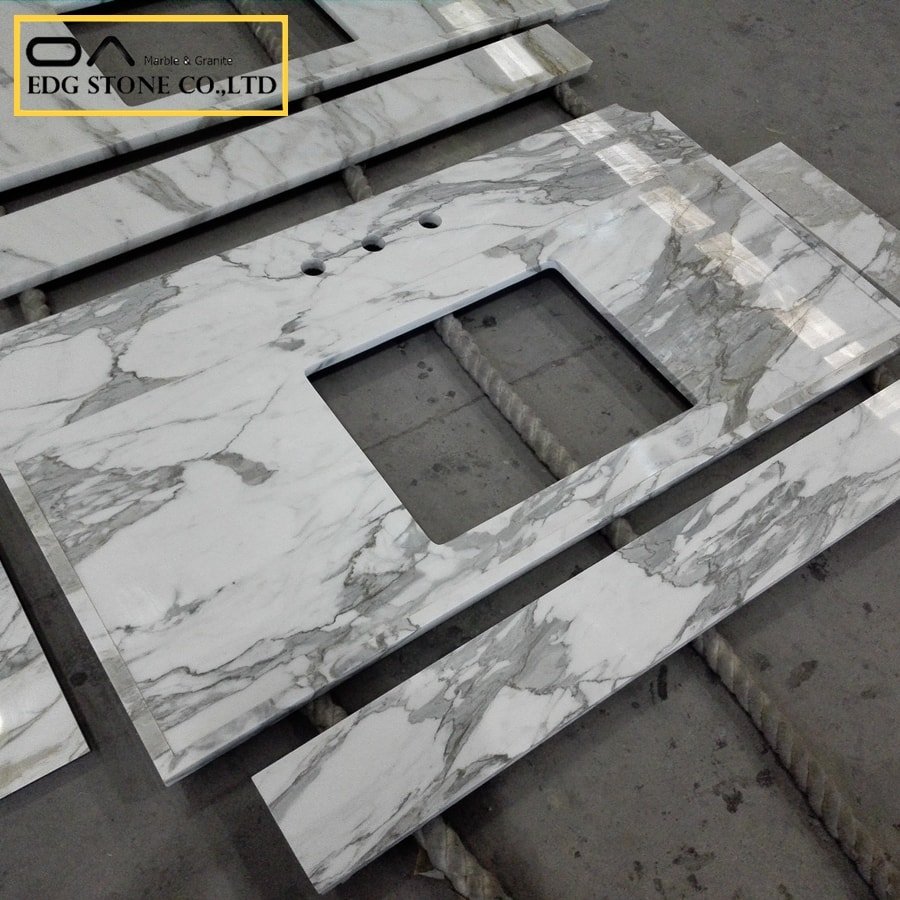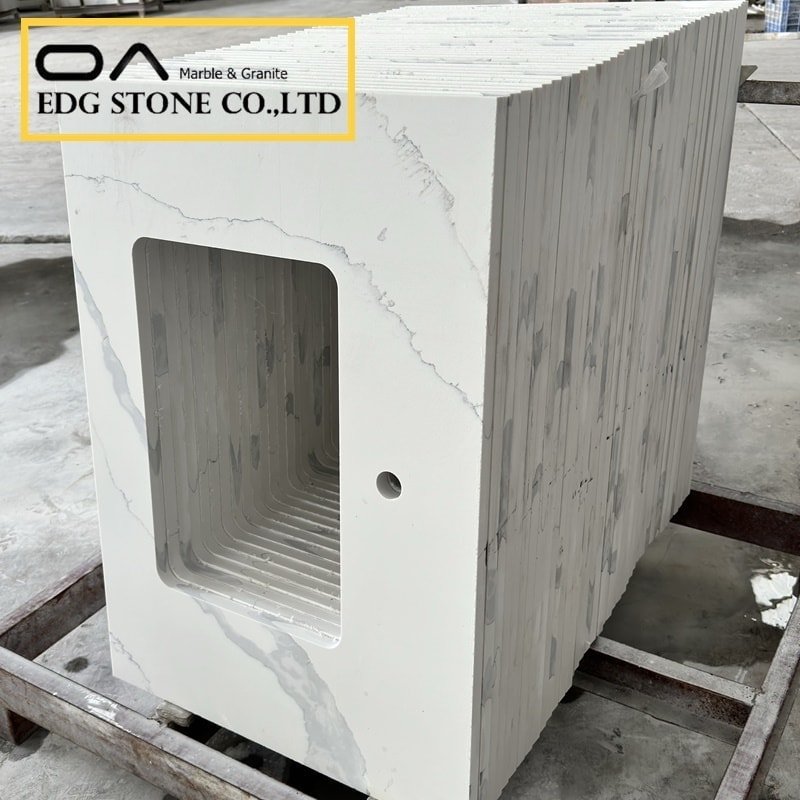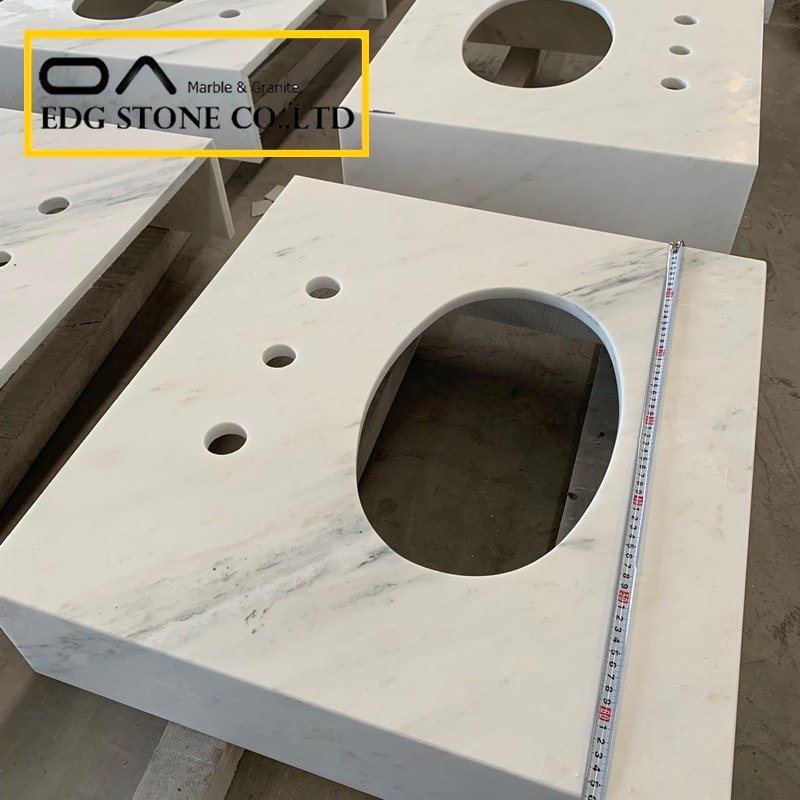Because it is so flexible, attractive, and long-lasting, granite has long been one of the most desired options for kitchen countertops. Homeowners pondering the idea of renovating their kitchens frequently ask the same question, though: Can you place hot pots on granite? In this article, we will investigate the nature of granite countertops, their ability to withstand heat, and they are more or less prone to heat than quartz marble, and other materials. Regardless of whether you own calacatta granite countertops, or engineered and manufactured granite ones, it is pivotal for you to know about the care of your stone for its further performance.
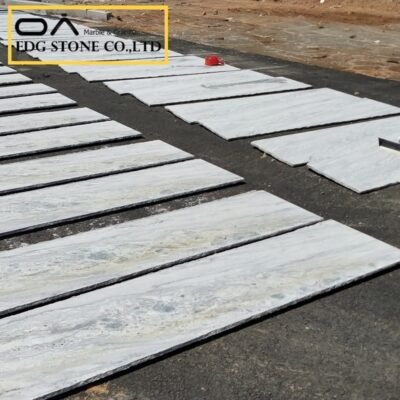
difference between marble and granite countertops
Resistance to Heat in Granite Countertops
Will Granite Survive Heat?
Granite is a natural stone that develops at the earth’s crust under a lot of heat and pressure which is the reason why granite countertops are believed to be heat resistant because they can withstand high temperatures without any damage. For those that constantly deal with hot pans while cooking, calacatta granite countertops are perfect for you as they are made using sticky glue which helps the countertops withstand adverse weather conditions. However, since granite is said to have high resistance to heat, this does not mean that extreme heat cannot damage it.
Granite vs. Quartz: The Heat Test
Let’s look at kitchen countertop choices: when considering heat tolerance, one of the biggest distinctions amongst granite marble quartz countertops is the heat tolerance that they possess. Quartz, despite its strength, can be more heat-sensitive because it consists of a combination of natural quartz and resin. The same cannot be said for granite as it can sustain high levels of temperature, however, it must be kept in mind that such exposure over a long period may allow the thermal shock to occur, in turn causing cracks or discoloration in the material.
Is It Safe to Place Hot Pans on Granite?
Short-Term Exposure to Heat
When it comes to granite, it can sustain a hot pan for a relatively longer time than other cooking materials. These countertops can withstand sudden temperature shifts as long as they aren’t overly aggressive, an example would be placing a pot on the surface while assembling it. As long as you don’t keep the material on the surface too long, the granite will sustain its shine and look. Not only does this show that granite can be a great choice for a countertop, but it also positions itself as a material that can be used for day-to-day activities.
Thermal Shock and Long-Term Exposure
A hot pan should not be placed on a granite surface for a long time, although granite is heat resistant. Just like an engineered granite countertop. Such surfaces can suffer from thermal shock. For example, if a cold granite surface is placed in contact with a boiling hot pan, the stone may begin to weaken and then crack. To avoid this situation, it is highly recommended to use a trivet, a hot pad, or a cutting board whenever needed.
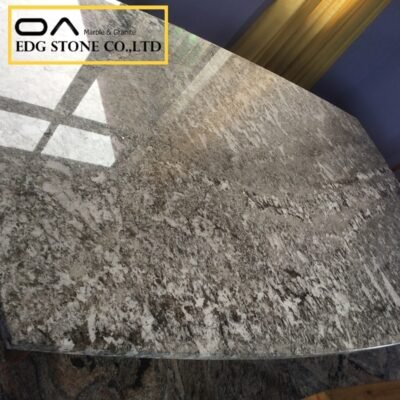
difference between quartz and granite countertop
Why You Should Seal Your Granite and How to Do It?
Granite, Like all Stones, Requires Safety Sealing
Granite countertops without proper sealing are porous and may soak in liquids. Even though sealing does not affect the heat resistance of the stone, it does shield the countertop from unsightly marks and scratches. You can always check for granite countertops that are sealed near me to ensure permanent investment. Make regular resealing of granite countertops to ensure that they remain appealing.
How to Tell When Your Granite Needs Resealing?
The need for resealing depends on the type of granite you are using and the wear and tear the counters receive. For example, absolute white granite is a little difficult to keep clean and may require resealing sooner. In general, industries suggest that the reseal period should be a timeframe between one and two years, however, it is always best to reach out to the supplier regarding the methods best for the countertop.
The Comparisons between Granite, Quartz and Marble Counters
Granite vs Marble: Toughness and Resistance to Heat
When granite and marble are compared, some differences are stark. Both materials have heat resistance, yet marble does scratch and stain more easily than granite. In the same vein, the two materials call for different maintenance finishes. Cleaning and sealing should be done more frequently on marble to keep it from aging, while manmade countertops that emulate granite have a better resistance to regular wear and tear.
Quartz vs Granite: Which Type is More Heat Resistant?
Out of the two options, quartz and granite, quartz tends to have its drawbacks as granite excels at heat resistance. A common debate is whether quartz or granite should be the choice for a countertop, and if heat is the focus then the sustainable choice would be to go with granite. But if high temperatures tend to scorch and discolor the quartz, then that greatly alters the choice. Granite kitchen countertops are more heat resistant than quartz, however, quartz is easier to maintain and is more aesthetically pleasing as it is not as irregular as a granite countertop.
Tips and Advice on Maintaining Granit Countertops:
Use Trivets and Hot Pads
When trying to keep your granite slabs in good condition, it is always best to use gravies or cutting boards under the pans as they can cause the slab to get hot and damaged. This is typically more practical for countertops that are manufactured or have a delicate finish. Granite countertops may be able to withstand high levels of heat, but they should be better left on the side to avoid potential compromising of the countertop quality.
Avoid Direct Contact with Extremely Hot Pots or Pans
While considering granite countertops always place them at the bottom of your list, as they can be easily damaged. Recommended practices state that granite countertops should always have protective surfaces placed over them to avoid any unnecessary pressure on them. They may have strong resistance to heat, but that does not mean they can sustain endless heat exposure, and consider an oven pan being directly placed on the surface without protection, it would greatly damage the countertop over time.
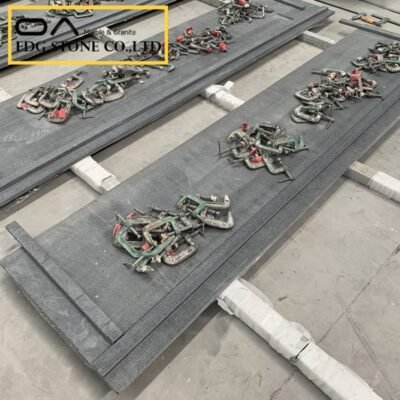
granite countertop manufacturers near me
Reasons Why You Should Consider Granite for Your Kitchen:
Always Timeless
Aside from its heat resistance, beautiful granite countertops bring a sense of aesthetic appeal missing from all the other options. Granite countertops and calacatta are amongst the most preferred for kitchens because they exude class allowing the user to display their style and personality regardless of the theme of their kitchen.
As Strong As A Rock
When choosing between countertops, granite should always be your option as it is robust and more durable than all the other options available, granite countertops installed in quartz marble kitchens are going to be a pleasant investment that provides high utility along with looking appealing, does it enhance the elegance of your wood modern kitchen? Absolutely yes!
Final Thoughts: Appropriately Placing Pans on Granite Countertops:
Although granite overly tempered pans can withstand four hundred and fifty degrees, tackling the question of whether or not granite countertops are strong enough is a scrappy one. While utilizing trivets, hot pads, or cutting boards when preparing food is helpful, do not over-rely on them, I would primarily suggest allowing pans to cool off for a while before placing them over the granite countertop. For optimum results, always keep in mind how intricate and well-constructed the engineered or calacatta granite countertop in your quartz marble kitchen is.
To conclude, granite countertops can tolerate hot pans up to a certain temperature, however, it is best to utilize protective pads or trivets to mitigate any potential impact from extreme heat. In comparison to marble and granite countertops, it is expected that granite exhibits better heat resistance which makes it an excellent option as a kitchen countertop. Nevertheless, it’s essential to seal your granite countertop slabs satisfactorily and maintain them properly and as preferred to retain their beauty and durability.

